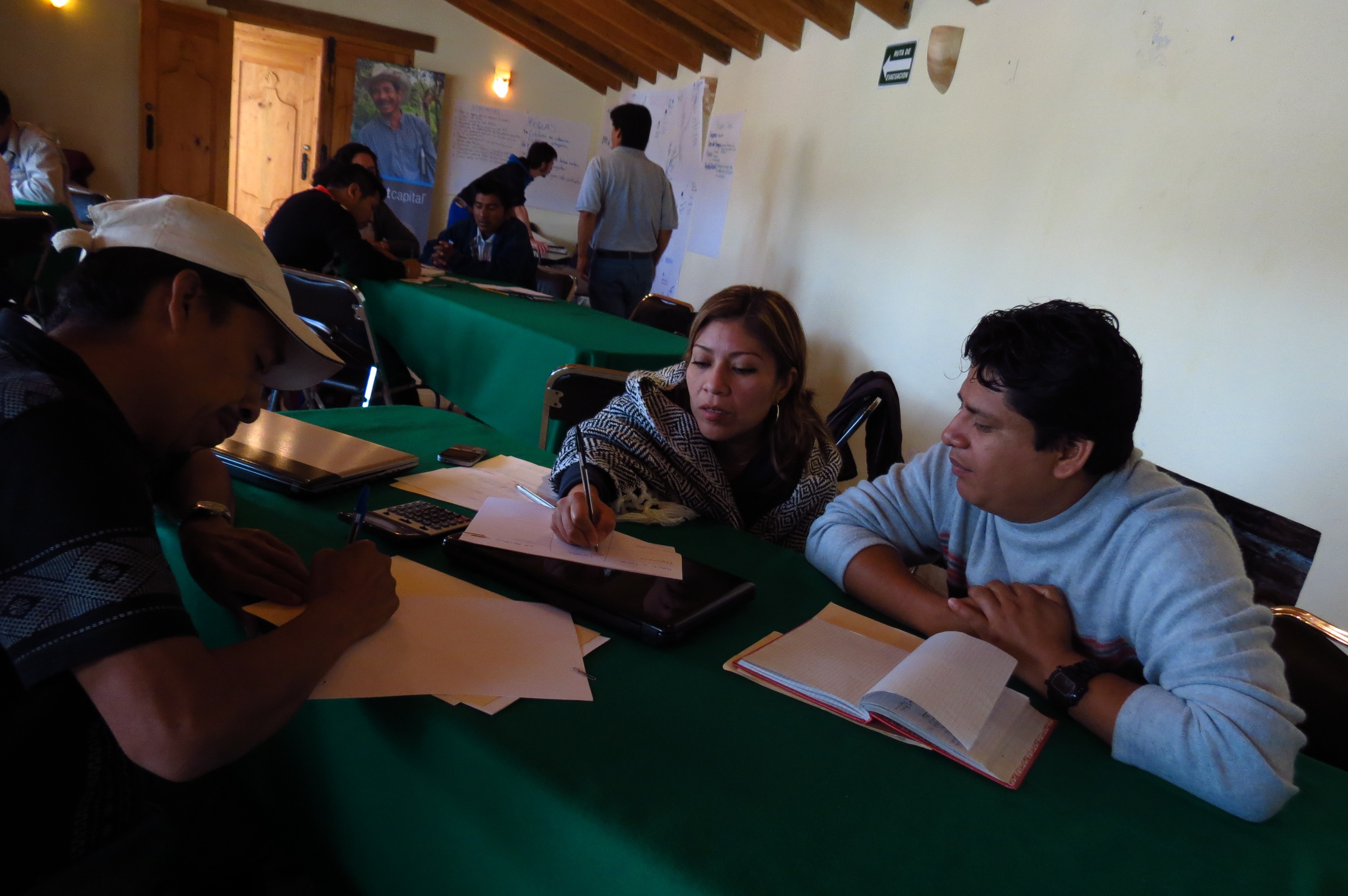
A Root Capital financial management workshop in San Cristobal de las Casas, Chiapas, Mexico.
A few years ago, Esperanza Dionisio, the general manager of Pangoa, a coffee cooperative in Peru, told us a story about a meeting she’d recently attended.
“There wasn’t a single woman there,” she said. “More than a hundred men, all of them stunned, looking at me like some kind of rare insect. But I had the chance to raise my hand and say something, and they were all shocked. It was just me and all those men, but I had the background and the knowledge, and so in the end they were satisfied, and they appreciated my work.”
Helping people like Esperanza – general managers, accountants, and board members of farmer cooperatives and private businesses – acquire critical knowledge and skills that set their businesses on a sustainable growth trajectory is the cornerstone of our Advisory Services work.
Since 2004, our team has trained thousands of people on topics like financial planning, internal controls, accounting systems, financial analysis, interest rates and profitability, and governance – the skillsets that allow businesses to become sustainable and grow. Our advisory services have played a role in helping Pangoa, for example, take on increasingly larger loans, allowing them to purchase coffee at premium prices from nearly 75 percent more farm families.
Cultural and economic barriers to women’s participation
Time and time again, we’ve heard about the barriers that limit women’s participation in our training:
“If a man wants to attend one of Root Capital’s financial management workshops, he wakes up, washes up, eats his breakfast, and is on his way,” said a woman employee of PRODECOOP, a coffee cooperative and Root Capital client in Nicaragua. “A woman would have to wake up much earlier, as early as 2 or 3 a.m., to take care of household chores and feed her family…She needs special arrangements to be able to access the same opportunities as a man.”
David Lozano, Root Capital’s Financial Advisory Services Coordinator for Mexico and a staunch champion of gender-inclusive pedagogy, recently told us, “Many women are extremely shy to participate during our trainings because of the social norms they grew up with. Some women will retreat outside the circle or whisper to each other, too timid to ask questions of the trainer. We aim to help change these paradigms and encourage women to gain confidence to speak in front of others.”
To date, 30 percent of the people we’ve trained have been women. Given the significant cultural and economic barriers we know women are up against, that number is a source of pride for us – but we think it should be higher.
Motivating women to take a seat at the table with practical “tweaks” to our training practices
We’ve been experimenting with new tactics and adapting existing practices to help women overcome these barriers so they can have the same access to and receive the same benefits from financial management training.
Earlier this year, our training team began converting these ideas into more formalized “best practices” in order to apply them more purposefully across our geographic footprint.
These practices, which we’ve begun to systematize, include explicitly inviting women to participate, paying for childcare during trainings, and continuously refining training pedagogy to participants’ mixed educational levels. You can read about how we’ve put a couple of these ideas in action in Guatemala and Rwanda.
This summer, we consolidated these best practices into a checklist for our financial management trainers, which we’ve been piloting in Central America and Mexico.
The goal of the checklist is to spread good practices to our entire network of trainers, who, while committed to women’s economic empowerment, may not yet have the tools to enhance inclusion in their trainings. This checklist is an important tool in the toolbox for enhancing gender equity, and we know that our financial trainers can be powerful change agents by modeling and promoting equitable gender practices in all of their actions.
We’re enthusiastic to hear your feedback and reactions to the checklist and to learn from your experiences in breaking down barriers to women’s participation.
___________
Root Capital invests in women by investing in agricultural businesses. We finance and build the managerial capacity of rural enterprises, strengthening the agricultural businesses that unlock market opportunities for women to participate as farmers, agricultural workers, and leaders. In 2012, Root Capital formally launched our Women in Agriculture Initiative (WAI) to study the roles played by women across our value chains, the barriers that women face to fully participating and benefiting from their participation, and to identify and seize opportunities to deepen our impact and our clients’ impacts on women.

What do you think?